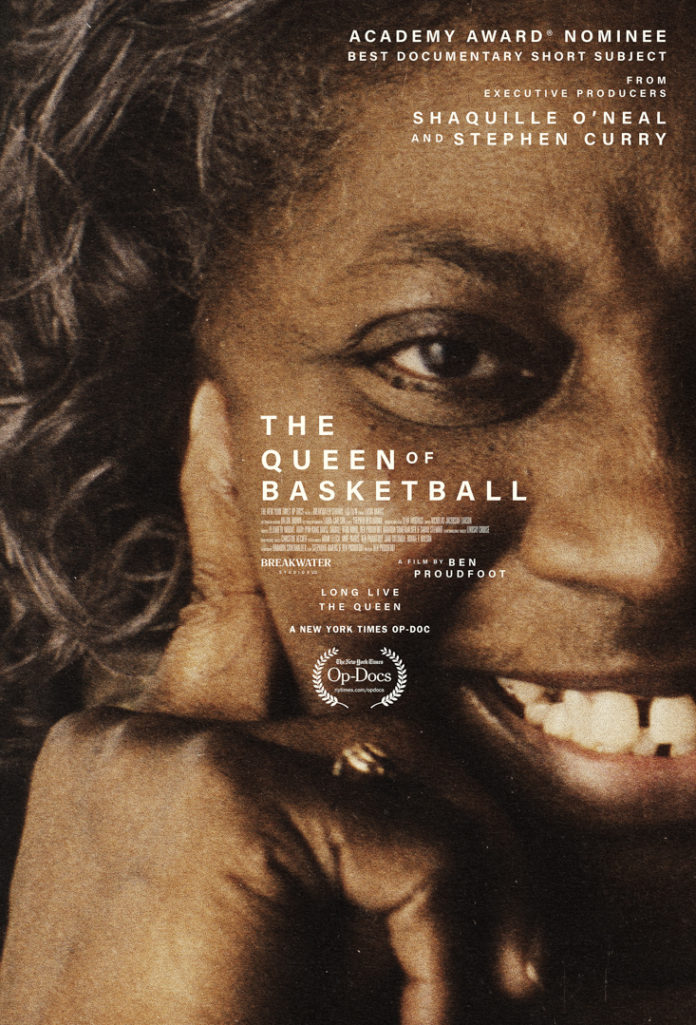The 94th Academy Awards took place on Sunday, Mar. 27. The Oscar-nominated short documentaries feature true stories of homelessness, a sports prodigy, bullies, Deaf football players, and a newly married Afghan refugee — with The Queen of Basketball taking the win.
Audible – Matthew Ogens – 39 min
Audible follows the life of Amaree McKenstry-Hall, a student at Maryland School for the Deaf. Matthew Ogens, the film’s director, spent 12 years trying to create a student-focused documentary before Netflix greenlit the project in 2019.
The film primarily tells the story of McKenstry-Hall and his school football team, who lose after a 42-game win streak. But the film also dives into McKenstry-Hall’s rocky relationship with his dad, who left his family after McKenstry-Hall lost his hearing as a toddler; the suicide of McKenstry-Hall’s close friend; and the anxieties and hopes of entering the hearing world after graduation.
The documentary is different from any movie I’ve seen because the majority of the film is spoken in American Sign Language. With a slower pace and subtle music, it’s an exploration of Deaf culture and student life.
Lead Me Home – Pedro Kos and Jon Shenk – 40 min
In this documentary, co-directors Pedro Kos and Jon Shenk tackle the issue of homelessness in Los Angeles, San Francisco, and Seattle. They interview dozens of individuals who have found themselves homeless from a variety of factors — high rent, abuse, family rejection, and mental health issues.
It was striking to see shots of tents and sleeping bags contrasted with shots of high-rise apartment windows and SUVs. The world of homelessness is not severed from the rest of us. Their subjects include pregnant women, individuals with jobs, and young families. The film not only shows the typical portrayal of homelessness — doing laundry at the laundromat, packing their belongings in grocery carts — but also shows these individuals experiencing moments of joy and normalcy, such as reading books, dancing, and being in love. It’s vulnerable. It’s humanising.
In the credits, they show a list of all the individuals they featured — putting a name, a real person, to the faces of homelessness.
The Queen of Basketball – Ben Proudfoot – 22 min – WINNER
Lucy Harris was a three-time national college champion, an Olympic silver medalist, and the only woman drafted by the NBA. Director Ben Proudfoot recorded her story in a 22-minute documentary about her life and her short basketball career. And if Shaquille O’Neal and Steph Curry are two of the executive producers, you know this is a player worth hearing.
The film shows close-ups of Harris telling her story, filling the frame with her confident smile and her natural storytelling, along with televised game coverage, black-and-white photos, and newspaper articles. Harris played with Delta State University and eventually with Team USA in the 1976 Olympics. Harris was the first female player to score an Olympic basket.
The documentary itself is not a grand piece of media, but its simplicity allows Harris to shine through. She shows a mix of confidence and complete humility as she speaks and laughs. She’s a woman who knows her worth.
“I have good memories about basketball,” she said simply.
Three Songs for Benazir – Gulistan Mirzaei and Elizabeth Mirzaei – 22 min
Three Songs for Benazir tells the story of Shaista, a young Afghan man living in a Kabul displacement camp. He struggles between his dream of joining the National Army, making quick money through opium harvesting, and starting a family with his new bride, Benazir. Directors Elizabeth and Gulistan Mirzaei, an Afghan-American couple who personally know Shaista, chose to make this documentary to show a more hopeful and resilient narrative of life in Afghanistan. “This mix of joy and sorrow, forever existing simultaneously in Afghanistan, is something we have tried to capture in our films,” they wrote in a blog post.
An interesting creative choice was to jump four years after Shaista tried to join the National Army. It takes a surprising turn to an addiction treatment centre; without the context of those four years, the change in thematic content left me with many questions and not enough answers. The film could have reached its full potential if they had chosen to feature more of Shaista’s journey to that centre.
Regardless, it shows the committed love between husband and wife, and the resilience of Afghan people.
When We Were Bullies – Jay Rosenblatt – 36 min
Disclaimer: As the film is released on the day of this newspaper’s printing, I didn’t have the opportunity to watch this film.
This documentary follows Jay Rosenblatt as he remembers a childhood bullying incident from 50 years ago. The filmmaker decides to track down his classmates, all of whom were involved in the bullying, to hear their perspectives and memories of the schoolyard incident.
“I remember the circle and the chanting,” one woman said.
What emerges is, supposedly, a deeper understanding of bullying, complicity, and memory. However, not everyone agrees with Rosenblatt’s tone and message. For some, it felt like Rosenblatt’s intentions were to make himself feel better, or that the incident was too narrow for the audience to connect with. Regardless, the documentary’s creativity and theme allowed When We Were Bullies to find its way towards an Oscar nomination.
Danaye studies English and procrastination at UFV and is very passionate about the Oxford comma. She spends her days walking to campus from the free parking zones, writing novels she'll never finish, and pretending to know how to pronounce abominable. Once she graduates, she plans to adopt a cat.


